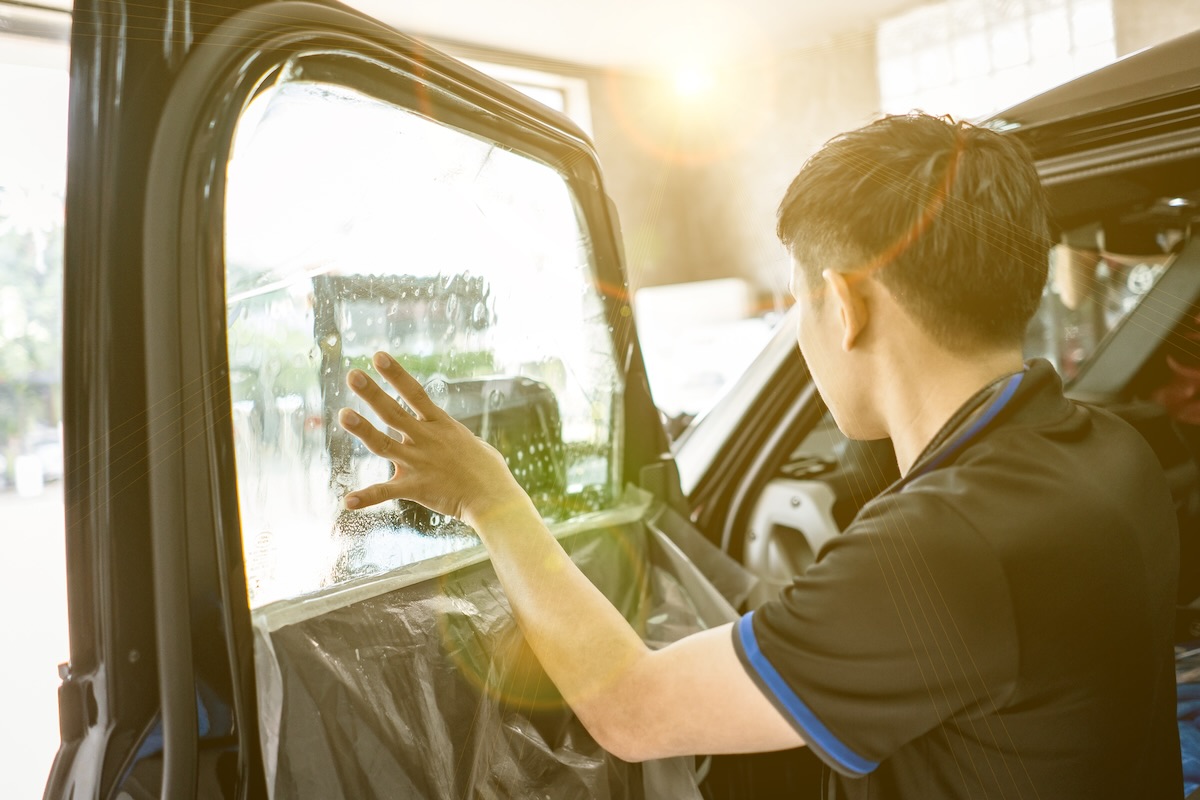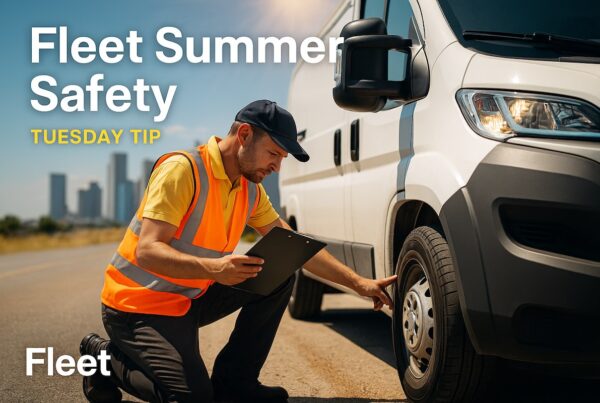Hey there, Fleet Managers and Drivers!
We at NTSI Fleet are all about SAFER driving and keeping your fleet and drivers safe and healthy in all conditions with our Summer Skin Safety for Fleet Drivers recommendations. With summer baking down on us (NTSI is headquartered in Washington State, and we saw 98 degrees yesterday in some parts and we know other places are seeing much higher temps than that!), we wanted to change gears a smidge (see what we did there?!) and talk about fleet drivers and skin cancer. Cheerful, huh?
Seriously though, did you know that fleet and professional drivers, or any drivers that are on the road for most of their day, are at an increased risk of developing skin cancer? Do you know why?
Let’s get into it! There are two types of UV radiation from the sun that cause damage that can lead to skin cancer: UVB rays, which mainly cause sunburn, and UVA rays, which mainly cause tanning and premature aging.
All glass windows block UVB radiation fairly well. Windshields are made of a laminated glass that can block over 90 percent of UVA radiation, too. However, untreated side windows and sunroofs are typically made of tempered glass so they shatter easily to protect you in case of a crash. Up to 50 percent of UVA radiation can penetrate this glass and reach your exposed skin.
Due to this, drivers are at a higher risk of developing skin cancer on the left side of their body due to prolonged exposure to UV rays that come through their side windows.
You don’t have to be at the mercy of the sun, though! Protect your fleet drivers from that miasma of incandescent plasma with these Summer Skin Safety for Fleet Drivers tips to avoid excessive sun damage while driving:
- Sunscreen for Fleet Drivers: Fleet drivers should apply a broad-spectrum sunscreen with at least SPF 30 on all exposed skin. Remember to reapply every two hours, especially during long hauls or when driving for extended periods. This helps protect against harmful UV rays that can penetrate vehicle windows and cause skin damage. Remember, sun damage can even occur when it is cloudy so never skip the sunscreen!
- Use Protective Clothing: Fleet drivers should wear long-sleeved shirts and wide-brimmed hats to cover their skin. Investing in UV-protective clothing can provide an additional layer of defense against harmful UV rays, especially during long shifts on the road. This helps minimize exposure and reduce the risk of skin damage.
- Tint Your Windows: Where feasible and permitted, fleet drivers should use UV-blocking window tints to significantly reduce exposure to harmful UV rays while driving. Ensure that your tints comply with local regulations to stay safe and within the law. This simple measure can help protect against prolonged sun exposure and lower the risk of skin damage.
- Take Breaks in the Shade: Whenever possible, fleet drivers should take their breaks in shaded areas to give their skin a rest from the sun. This not only helps reduce direct UV exposure but also provides a cooler environment to rest, making breaks more comfortable and safer from sun damage.

- Use Sun Shades: If allowable, fleet companies should install sun shades in their vehicles to block direct sunlight while driving and when parked. This can significantly reduce UV exposure and help keep the vehicle cooler, providing a more secure and pleasant driving environment.
- Regular Skin Checks: Fleet drivers should regularly check their skin for any changes, such as new moles or spots that change color or size. Early detection is key in treating skin cancer. Foster a company culture of health and safety within your fleet by not only promoting SAFER driving but also encouraging drivers to use health resources and benefits. Prioritizing health checks can catch potential issues early and keep drivers safe on and off the road.
Remember, a little prevention goes a long way in keeping your fleet drivers, and everyone you know and love that drives daily, healthy and ready for the road.
NTSI Fleet cares about the health of your fleet drivers just as much as providing your SAFER driving training, so stay cool, stay safe, and pass the sunscreen.





